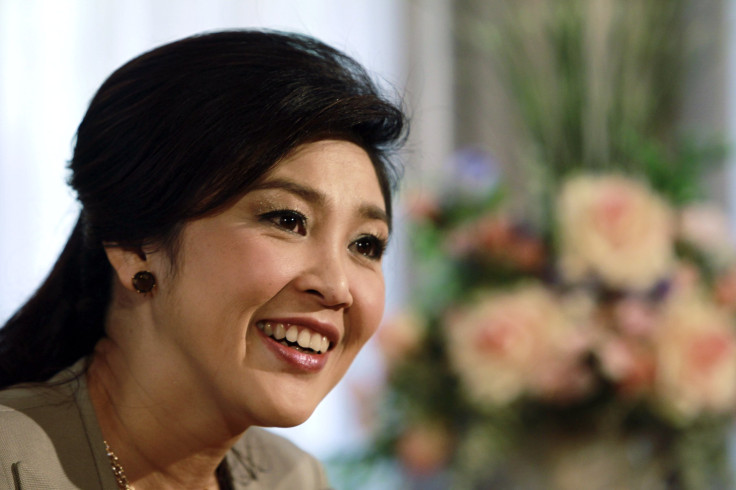Thai PM Yingluck Shinawatra Prevails In No-Confidence Vote Amid Anti-Government Protests

Thailand’s Prime Minister Yingluck Shinawatra survived a no-confidence vote by a wide margin in parliament on Thursday, even as the country is rocked by the biggest anti-government protests since the deadly clashes between protesters and government forces in 2010.
Yingluck’s Puea Thai Party, and coalition partners who have a majority in the lower house, voted down the no-confidence motion that was brought by the opposition Democrat Party, after a three-day debate about the government’s water management program and rice intervention scheme, Reuters reported. Yingluck won 297 votes, well above the 246 votes needed out of the 492 votes in the lower house.
Meanwhile, protest leader Suthep Thaugsuban, who was the deputy prime minister in 2010 when the government ordered a crackdown that killed dozens of protesters, rebuffed Yingluck’s offer to hold talks to diffuse tensions.
“There will not be any talks with her,” Suthep said on Wednesday before the vote, Bloomberg reported. “Political reform will be achieved only by the people. Politicians will have no role in the country’s new political reform.”
Suthep is a former Democrat Party lawmaker, against whom police have issued an arrest warrant. He has called for people to join demonstrations to bring down Yingluck’s government, which the protesters say is controlled by her brother Thaksin Shinawatra -- a former prime minister and one of the most popular and polarizing figures in Thai politics.
Thaksin, a telecommunications business tycoon and billionaire, was the first Thai premier to lead a government that completed a full term in office. He enjoys massive popularity among the country's poor, but is widely opposed by the influential class in Bangkok.
About 50,000 protesters gathered in Bangkok and seven other provinces on Wednesday, Bloomberg reported, citing a police spokesman, but despite weeks of protests, which have remained peaceful, the nation’s tourism industry has not been affected.
“The demonstrations are limited to the government sectors and no tourist or business operations in the city are affected at all by these peaceful demonstrations,” William Heinecke, CEO of Minor International, which owns and operates several hotels and resorts in Thailand, told Bloomberg during a television interview.
United Nations Secretary General Ban Ki-moon expressed concern over the continuing protests and rising political tensions in Thailand, and called on “all sides to exercise the utmost restraint, refrain from the use of violence and to show full respect for the rule of law and human rights,” according to a statement issued on Wednesday by his spokesperson.
He also welcomed the Thai government’s “assurances that it will continue to respect the rights of people to hold peaceful demonstrations,” the statement said.
© Copyright IBTimes 2024. All rights reserved.






















